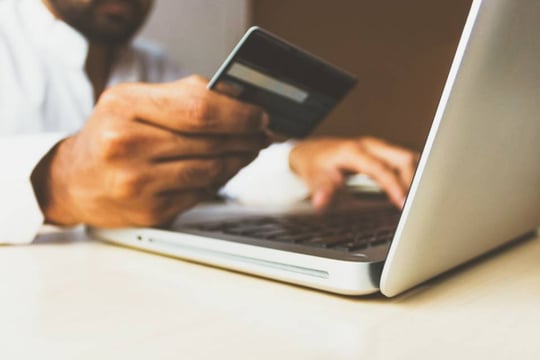How to Control Emotional Spending
Take control of your emotional spending
Shopping has become a huge part of today’s society. Advertising has taken over with the technological advancements that have become a part of our daily lives. Whenever you turn on the TV or simply open your smartphone, adverts trying to convince you to buy their products pop up constantly. No wonder emotional spending has become such a huge problem in many of our lives. Do you know what your spending habits are?
Emotional spending?
Emotional spending happens when you buy something you don't need (or even want) due to strong emotions such as stress, boredom or feeling underappreciated. These negative emotions can lead to emotional spending, but positive emotions could also play a part. A good example of this is rewarding yourself with something when you get a raise or any accomplishment. We like to call this retail therapy :)
Although buying yourself a gift now and then is not wrong, buying yourself a gift when your finances are in a bad situation and you cannot afford it, is. When you end up spending more on non-necessities than paying off your debts and bills, it starts to create bad spending habits. You must learn how to recognise when you are partaking in emotional spending and avoid it. There are however some steps you can take to avoid emotional spending.
Impulsive buying
Avoiding impulsive buying can start you on the right path to controlling emotional spending. Impulsive buying is when you go to the shop and you see something that you did not want before you got to the shop. This does not include a chocolate bar at the checkout, it is more like that top that you saw and do not need. A great rule to follow, is the 24-hour rule. Leave the shop and wait 24 hours to see if you still want the item you were about to buy. Usually the urge goes away and if it does not, a voice of reason will come into play because you know you cannot afford it. If this is the case, then you can try to postpone the purchase until the next pay day when you can afford it or even save it for a birthday gift idea. Often the best thing to do if you suffer from this is to leave the credit card at home!
Adverts, adverts, adverts
Watching advertisements only makes you aware of what there is out there for you to buy. Try to keep your expose to advertisements low, this will make it less likely for you to develop a “need” for the item. You can unsubscribe to newsletters and catalogs that are sent to your mail. You can further avoid ads by downloading an ad blocker on your computer. While the ads play on the TV, go do something that you have been avoiding during the day, like taking out the rubbish.
Accountability
A great strategy to follow is to keep yourself accountable for the money you spend. Tell your friends and family that you are wanting to spend less and to give you a hard time if you want to spend money on something you don’t need.
Another great way to keep yourself accountable is to stick a list of your financial goals onto your fridge or somewhere you will see it often. You can even put a daily reminder on your phone just to keep them in your mind. This will remind you of what you are saving up for and help to keep you on track.
Severe emotional spending
For some, the above is impossible as, to them, emotional spending is more than a habit it is an addiction. Many may not see this type of addiction as dangerous, but it can be.
Compulsive shoppers will spend more money than they can earn. This shopping leads to a rush of endorphins followed by a slump of anxiety due to the reality of bills and debt setting in. This increases feelings of shame in the compulsive shopper which further leads to them hiding and lying about purchases which strains their relationships. They then fall further into their addiction.
Until these underlying emotional issues and shopping problems have been dealt with, their destructive spending behavior will continue. If you suspect you have a shopping addiction or know someone who you think has one, it is a good idea to seek professional help to manage the issue.
The final step
The best way to control emotional spending is not to stop buying the unnecessary things you want completely; it is to become aware of your spending habits and develop more conscious habits. By becoming a more conscious shopper, you will be able to gain greater control over your finances and not have to deal with the guilt of buying something you cannot afford.
[activecampaign form=1]

